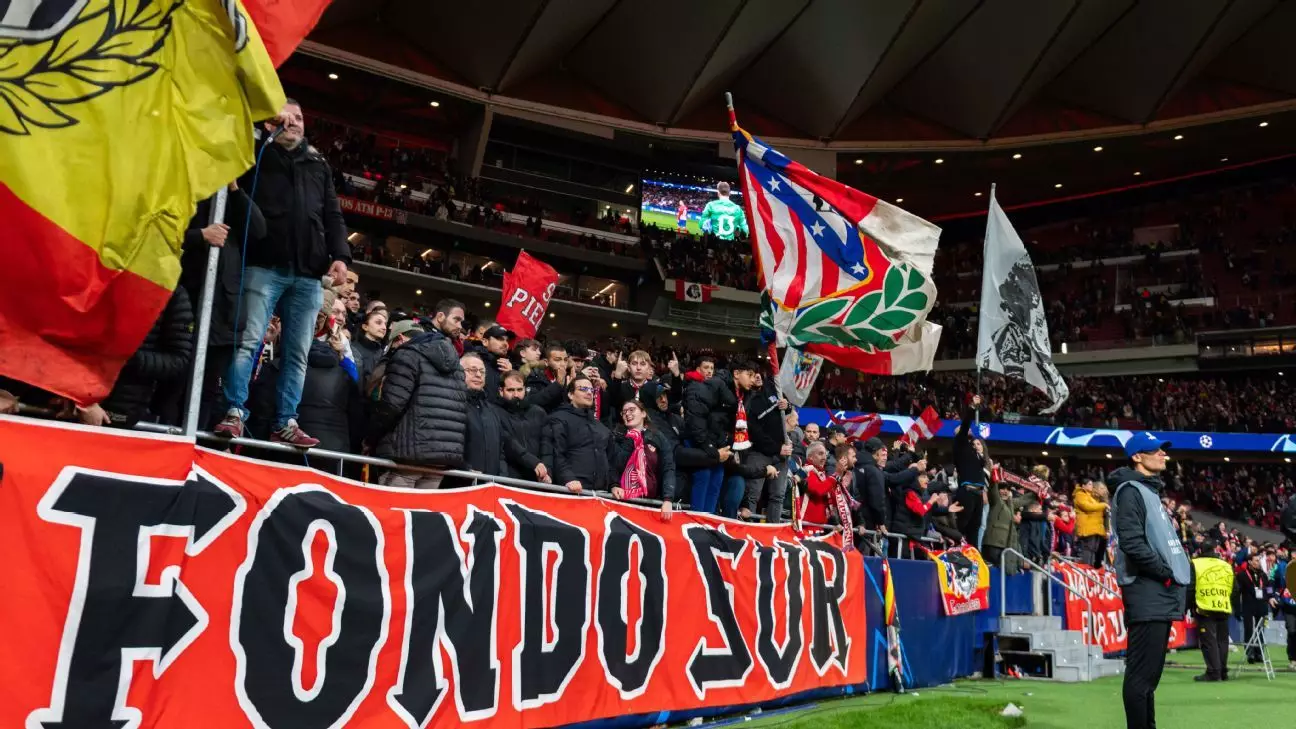Atletico Madrid has recently found itself grappling with the consequences of unruly fan behavior during a tense match that culminated in a 1-1 stalemate against rivals Real Madrid. The fallout was significant, leading to the imposition of a three-game partial closure of their stadium, a decision that has now been reduced following an appeal. This incident not only reflects the challenges the club faces regarding fan conduct but also highlights the intricate dance between enforcement agencies and sports teams when handling such situations.
Despite initially facing severe penalties, Atletico’s appeals to the Royal Spanish Football Federation (RFEF) have seen a relatively favorable outcome. The Appeals Committee not only reduced the stadium ban from three games to just one but also slashed the monetary fine from €45,000 to €3,000. The rationale provided by the committee ostensibly acknowledged the efforts made by the club to implement stricter measures aimed at curbing disturbances. Yet, the statement also hinted at a lack of sufficient management on some aspects of fan interactions, suggesting that the organization is on a precarious path to fully ensuring compliance and order within its ranks.
This reduction serves as a glimmer of hope for Atletico’s management and a chance to rally its supporters who have been mistakenly perceived collectively due to the acts of a few. However, this leniency may also be viewed as a slippery slope—one that could embolden future misconduct if not adequately deterred.
Addressing Immediate Concerns and Long-term Consequences
Moreover, the incident has prompted a more significant examination of the club’s approach to fan relations, with Atletico’s management having implemented severe measures, including the permanent bans of four identified offenders. The club’s stance against unruly behavior represents a step in the right direction; however, it’s crucial to recognize that the existing framework may not be enough to placate governing bodies that are keen on maintaining order and respect in football.
The Anti-Violence Commission has also proposed what could be an even harsher consequence in the form of a two-week total closure of the Metropolitano stadium along with an additional fine. This means Atletico could face ongoing repercussions that extend beyond immediate penalties, as the integrity and image of the club continue to hang in the balance.
Atletico isn’t just facing scrutiny domestically; issues of fan behavior have global implications, as seen in their recent UEFA sanctions that followed troubling incidents during a match against Benfica. The club’s agreement not to sell tickets to season ticket holders for upcoming away matches signifies the growing pressure from organizations like UEFA to create a more secure and welcoming environment in football arenas. This reaction highlights a dual responsibility: ensuring that the actions of a minority do not tarnish the reputation of the broader fan base, who generally conduct themselves with commendable sportsmanship.
In the end, Atletico Madrid’s plight provides an important lesson about the balance between fostering passion in sports and maintaining respect for the game. The club must navigate this challenging landscape thoughtfully, ensuring that the behavior of a few does not unjustly paint the majority of fans in a negative light. As they work to restore their image and build a safer environment, Atletico must also put forth a genuine commitment to addressing the underlying issues that lead to such incidents. The journey ahead will be fraught with obstacles, but it also presents an opportunity for growth and improvement within the football community.

